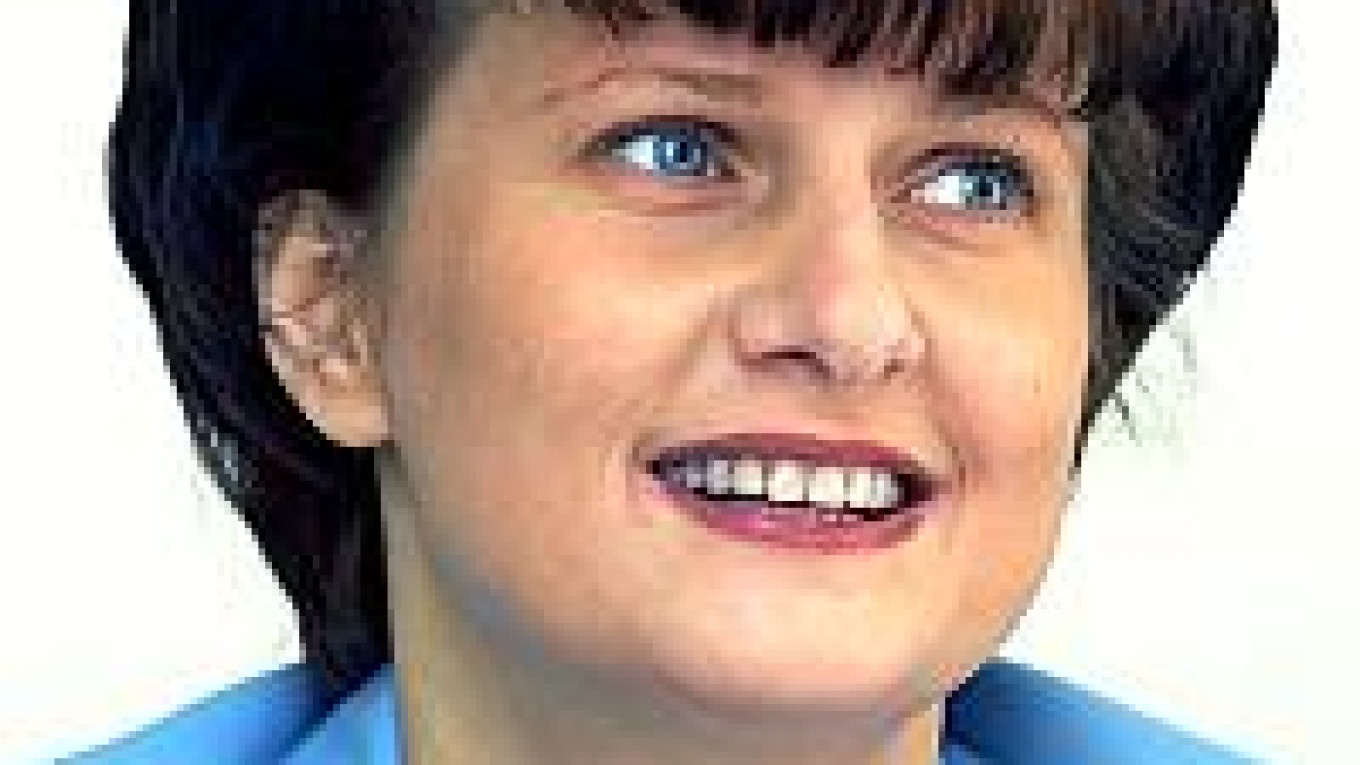A graduate of the Moscow Aviation Institute's armament department, Pleshakova was prepared to take the first call to defend her country, but she made a U-turn to the civil sector upon her graduation as the vast military complex began its demise.
Now, from her spacious-yet-simple office, she rules an army of 850 employees as general director of Transaero. Pleshakova, 35, and her husband Alexander, the airline's chairman, set up Russia's first private airline a decade ago.
Though more and more women hold top positions in business, Pleshakova was the first to do so in the Russian airline industry. But she speaks little of women's emancipation, saying Transaero is a family business ?€” one she shares with her husband.
Pleshakova was hired by her husband and has since climbed up the career ladder from being a rank-and-file specialist to having a seat at the wheel.
"My husband went to work at the commercial department of the Civil Aviation Ministry, and it was then that the Transaero project appeared. And who did he invite to help out? He invited me, his wife."
The government decided in 1990 to set up a private airline, which made its first flight in November 1991 from Moscow to Tel Aviv.
"One day he [Alexander] called me and asked me to come to the office. When the door opened, he introduced me to a group of people sitting at his table, saying, 'This is Olga Alexandrovna Pleshakova, she will deal with service at our company.' Thus I was employed," Pleshakova recalls.
She thinks nothing of family relations playing such a large role in her career. "It's perfectly normal, inviting a close person to support you in your business," Pleshakova says.
"We have always worked together like partners, and from the very first day took each other's counsel," she adds.
No. 3 among domestic airlines by passengers carried on regular flights to international destinations, Transaero will mark its 10th anniversary in November.
Set up as a major independent competitor to state-controlled Aeroflot, Transaero was the first home-grown airline to introduce Western-style cabin service and a business-class section on domestic flights.
It became a popular alternative carrier on flights to Tel Aviv, Israel, London and Frankfurt, Germany.
Pleshakova was at the heart of these innovations as the airline's specialist in passenger service. She took the matter into her own hands from day one and, as her husband says, "made the company famous" for its high standard of service.
Pleshakova wrote her college thesis on defending the Far East from enemy cruise missiles. Ironically, her seemingly irrelevant education came in useful, as she took an almost military approach to the challenge before her. "First thing I did, I sat down and wrote up a strategy of onboard service."
Pleshakova made a point of avoiding Soviet-style service onboard, so everything had to be done from scratch. "It's one thing when you are in the passenger's seat and expect things to be done for you, but what do you do to meet the passenger's needs?" she says.
"Every simple thing ?€” like what cutlery to use, what drinks to serve, what cabin crew uniforms to choose, how to treat business-class passengers and what business class is to start with ?€” none of those were taught anywhere."
As part of this strategy, Pleshakova invited psychologists from Moscow State University and specialists from Air France to work with the cabin crew.
"We were the first airline in the post-Soviet period that singled out service as a separate issue. It was only in 1997 that other domestic carriers started to address this issue as well," Pleshakova says.
Her concern for raising service standards then spread to sales and information offices, to the check-in and after-flight services, Pleshakova says. Eventually, all four spheres were brought into one department, and this was followed by her promotion to deputy general director.
Earlier this year, she was appointed general director by the airline's board. Pleshakova has been charged with steering the airline to financial health, strengthening its position and boosting market share on both domestic and international markets despite yielding ground considerably after the 1998 financial crisis.
Today, Transaero operates a fleet of six Boeings and one Airbus, all leased, and owns an Il-86. The carrier flies to 19 destinations in Russia, the Commonwealth of Independent States and further abroad.
Last year it carried 430,000 passengers and posted a profit of 280 million rubles ($9.55 million) on revenues of 2.5 billion rubles. The airline is looking to lease more aircraft, increase passenger figures and further improve standards of service.
Pleshakova does not seem to mind the challenge. She has already completed a hefty task ?€” helping move the airline's services from Sheremetyevo-1 to the recently renovated Domodedovo Airport.
A Message from The Moscow Times:
Dear readers,
We are facing unprecedented challenges. Russia's Prosecutor General's Office has designated The Moscow Times as an "undesirable" organization, criminalizing our work and putting our staff at risk of prosecution. This follows our earlier unjust labeling as a "foreign agent."
These actions are direct attempts to silence independent journalism in Russia. The authorities claim our work "discredits the decisions of the Russian leadership." We see things differently: we strive to provide accurate, unbiased reporting on Russia.
We, the journalists of The Moscow Times, refuse to be silenced. But to continue our work, we need your help.
Your support, no matter how small, makes a world of difference. If you can, please support us monthly starting from just $2. It's quick to set up, and every contribution makes a significant impact.
By supporting The Moscow Times, you're defending open, independent journalism in the face of repression. Thank you for standing with us.
Remind me later.


